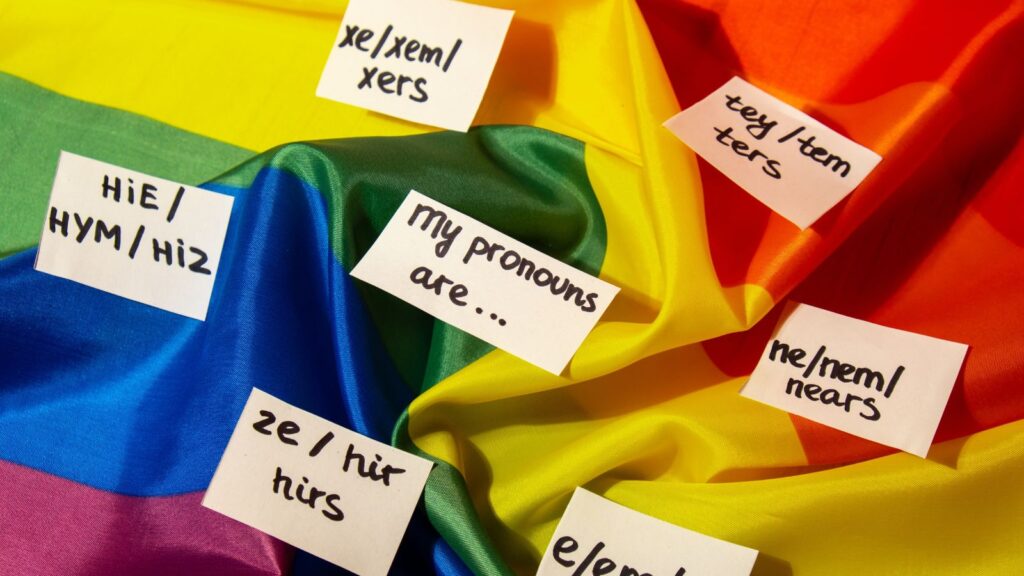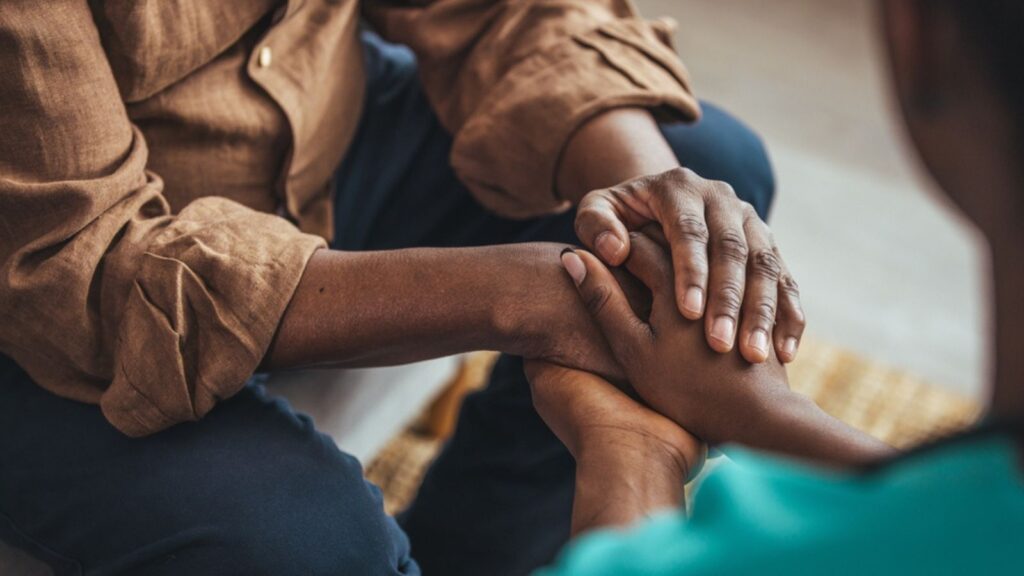Society has moved a long way towards gender equality and equity. Nonetheless, there are still strides to be made to combat gender norms and stereotypes that are damaging to progression and healthy power dynamics. Nowhere is this more demonstrable than within romantic relationships, where traditionally gendered roles and everyday sexism can impact even the most loving of couples. Here, we have compiled 18 ways to be a feminist in your relationship to create an equal and progressive dynamic that can stand the test of time.
Share Decision-Making Equally

By sharing decision-making, you acknowledge and respect both partners' agency and important points of view, challenging traditional gender roles that often prescribe decision-making power to one gender over the other. It promotes a dynamic of equality, where each partner's voice is valued equally, building a partnership built on mutual respect and collaboration.
Share Household Responsibilities Fairly

A perception that the bulk of household labor is to be done by one gender over the other is still prevalent in modern society. By challenging this norm and distributing household tasks equally, you are demonstrating that you value the contributions of both partners in maintaining the home, fostering a more equitable and supportive dynamic within the relationship.
Foster Respect

Mutual respect should be at the core of any healthy relationship that prioritizes feminist arguments, challenging patriarchal norms that have historically minimized women's voices and agency. For both partners to feel valued, supported, and empowered, maintaining the foundations of respect by validating each other's experiences is of absolute importance.
Challenge Gender Stereotypes

As mentioned, dated gender stereotypes continue to plague relationships that are otherwise thriving. By continuously challenging these old-fashioned roles and expectations, both partners are able to express themselves authentically despite gendered societal expectations. This allows individuals more room to grow and develop, pursuing their goals without limitations.
Communicate Openly

For a relationship to be truly feminist in nature, it is crucial that both partners feel they can express their feelings, needs, and desires openly and without judgment. This helps to strengthen mutual respect and understanding while dismantling structures that held one gender dominant over the other and instead fostering a collaborative partnership.
Support Your Partner in Their Career

The days of a stereotypical ‘breadwinner' and stay-at-home parent ought to be long behind us. However, the expectation that one-half of a relationship will sacrifice their career goals for the other is still prevalent. This often happens along gender lines and flies in the face of feminist progression. A better alternative is to equally support one another's career aspirations, discussing openly what balance works for your relationship and how compromises can be made to ensure equality.
Respect Boundaries and Consent

In a healthy relationship, no one partner's desires should be prioritized above the others. It is important that emotional or physical barriers be respected from both sides, acknowledging one another's agency and dismantling patriarchal concepts of dominance. Even in a long-term relationship, barriers and consent should remain sacred without fear of reprisal.
Challenge Toxic Masculinity

Men should be able to share their emotions and feelings without fear of being mocked or ridiculed. Challenging the stigmas surrounding this creates a better environment for individual mental health and for the relationship to flourish. Equally, rooting out behaviors that stem from dominance and control subverts toxic masculinity and leads to a more equitable partnership.
Listen Actively

Historically, women's voices have been silenced and marginalized in relationships as well as in wider society. By fostering a culture of active listening, not just to appease but to understand, a more prosperous and equal relationship can grow. For both sides to be able to express themselves, it is important to allow for equal contribution.
Advocate for Gender Equity

Standing against sexism and misogyny both within and outside the relationship demonstrates a willingness to stand up for progressive values that allow all genders to be equal. This develops mutual respect in a partnership and reassurance that you are aligned on important societal issues of gender equality.
Grow Together

By boosting and supporting each other to grow in a relationship, you reject the idea that one person's desires or goals are more important than the others. Mutual success and empowerment take precedence over traditional power dynamics that all too often champion one gender's growth and development over another's. Using your shared love and respect for one another to encourage individual growth will only strengthen your bond.
Embrace Gender Identities

Challenging outdated binary ideas of gender is feminist in that it acknowledges the diverse array of life experiences out there without placing any one identity on a pedestal over another. Allowing individuals to express themselves as they truly are helps to grow a culture of acceptance and equality, leading to a more loving relationship.
Equality in Family Roles

Some of the most rigidly held beliefs on traditional gender roles remain in the sphere of family life. Challenging the idea of assigning particular domestic, familial, and parenting roles on the basis of gender makes for a much more balanced and equitable partnership. Each partner's contribution is valued equally, and splitting the load allows for greater growth as individuals and together.
Celebrate Each Other's Successes Equally

Rejecting the idea of celebrating one partner's success over the other's is crucial to a healthy, feminist relationship. Empowering your partner and acknowledging their success fosters mutual respect and a sense of support. Share celebrations together and with others to cultivate true partnership and equality, with no one achievement being greater than the other.
Encourage Each Other's Interests

Old-fashioned perceptions that some hobbies and interests are gendered can damage relationships. Challenging these ideas by encouraging each other's skills and hobbies, regardless of gender stereotypes, creates a more loving and fruitful dynamic where both partners can thrive and enjoy sharing the benefits of their unique and individual interests.
Ensure Financial Equality

In order to challenge existing power dynamics and uneven structures in patriarchal relationships, it's important that financial equality is achieved. No one partner in a relationship, regardless of gender, should have full control and power of the finances to ensure agency and fairness. This serves to dismantle power imbalances and leaves space for equal contribution.
Encourage Independent Growth

Even within a close partnership, acknowledging each other's independence and unique personality is of utmost importance, particularly to maintain a feminist dynamic. Both partners become able to pursue their own personal goals with the support of their partner, making the relationship much more fulfilling and likely to prosper.
Challenge Power Dynamics

To engage in an equal relationship, it is important to acknowledge and dismantle hierarchies that may bolster one partner's needs over another. Active participation in listening and learning as a partnership creates the space that is needed for each partner to feel respected and heard. Agreeing to disregard gendered stereotypes goes a long way to creating this equal dynamic.
30 Traditional Sayings That Are Now Considered Offensive by Woke Culture

30 Traditional Sayings That Are Now Considered Offensive by Woke Culture
21 Habits Often Associated With Having a Lower Social Status

21 Habits Often Associated With Having a Lower Social Status
25 Social Issues Gen Z are Determined to Cancel

